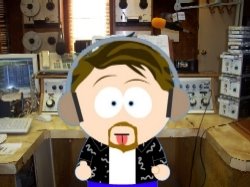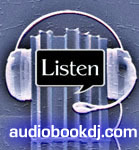Book Review: "The Accident" by Elie Wiesel
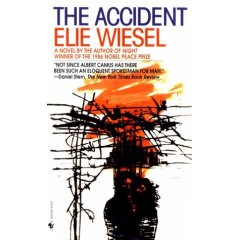
This is the 3rd and final book in the series written by Elie Wiesel. The first book being the Nobel Prize winning, "Night," which was the author's account of the holocaust. The second was a story of a holocaust survivor coming to grips with the terrors experienced in the holocaust by becoming a freedom fighter in Palestine.
"The Accident" (The original French title of the book was Le Jour [Day]) is the story of a holocaust survivor struggling to adjust to life after World War II. The main character is a journalist whose own experiences during the holocaust have left him, like many others, with a strong sense of despair and self-loathing that he finds it impossible to find any satisfaction in life. Despite the efforts of his girlfriend and others, he finds himself withdrawing from life more and more. The title of the novel refers to an accident that occurs when he is hit by a cab, while on his way to the theatre at the beginning of the book. This accident sets off a series of memories that take the reader through the protagonist's psychological and emotional struggles as he grapples with his urge to end his life while simultaneously recovering from a near-death experience.
During the journalists reliving moments of the past the reader is haunted by many horror stories of the holocaust. One can find it easy to see how the journalist can find no happiness in life. This book is a story that digs in that hope HAS to survive. It's easy to see how one can lose hope but this book really points out how much humankind NEEDS hope.
This book is not one of those uplifting feel good books but it does allow you to enjoy what you have.
Labels: book review, books, elie wiesel, holocaust
posted by Gil T. @ 7:54 PM


Book Review: "Dawn" by Elie Wiesel
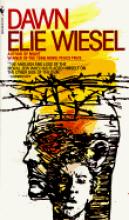
"Dawn" is the second book in the "Night" trilogy that covers the philosophical gamut of humanity. In "Night," Wiesel's Nobel Prize winning novel, the reader relives Wiesel's real life in the German concentration camps of Auschwitz and Buchenwald but portrayed in novel form. "Dawn" covers the character Elisah's life after World War II and again finds the question of humanity at the forefront.
The main character Elisha is a member of the Movement, a Jewish terrorist group, whose purpose is to drive out the English forces from Palestine by any means necessary. Elisha was incarcerated in Auschwitz and then Buchenwald during the war and lost both of his parents in the process. When the Americans freed him, he went to France, which granted him asylum. He was preparing to enroll in Sorbonne to study philosophy when he meets Gad, a member of the Movement, in Paris. Gad came to visit him and talks fervently about realizing the age-old dream of an independent nation for the Jewish people and asks Elisha to join the Movement, which is in need of new recruits like him.
In the Movement, Elisha, only 18 years old, has completed some assignments that meant killing British soldiers, but never the one as personal as what he has to do at dawn. Elisha has to be sole executioner for British officer John Dawson. One of the movement David Ben Moshe has been captured tried and will be executed at dawn for petty crimes. The execution is the severe punishment the British are placing on all captured Movement members to "send a message." The Movement has decided to send it's own message by capturing John Dawson and telling the British if Ben Moshe is executed so will be John Dawson.
The idea of having to murder a man causes Elisha to relive many moments in his past to try to hate John Dawson and for Elisha to justify murdering a man.
The many emotions and ideals covered in this book are moving for such a short novel. Wiesel holds no bars and the reader is forced to come to his own conclusions about humanity, justice and ethics. But the novel does not necessarily try to justify Elisha's actions. In fact, while Elisha contemplates the morality of his impending action against Dawson, he admits, "I did not know the man. To my eyes he had no face; he did not even exist, for I knew nothing about him. I did not know whether he scratched his nose when he ate, whether he talked or kept quiet when he was making love, whether he gloried in his hate, whether he betrayed his wife or his God or his own future. All I knew was that he was an Englishman and my enemy."
Labels: book review, books, elie wiesel, holocaust, palestine
posted by Gil T. @ 7:38 PM


"Night" by Elie Wiesel
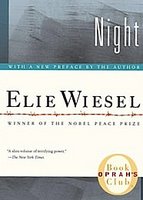
Much of mankind's history is fraught with tragedy so severe that it is almost unbelievable. Some simple yet severe examples have happened in only the last 2 centuries. The destruction of the race of Indigenous Americans, Indians, and the slaughter of the Jews during the Holocaust. These things should never be forgotten, lest we repeat them (to paraphrase, Santayana). Elie Wiesel has captured his experience in the book "Night." The amazing thing is that this book, with only 120 pages or so, captures so much emotion, destruction, sadness and loss of faith to cover many lifetimes.
I will warn you this book will play on your conscience long after the book has been read. The amazing and tragic events of the German slaughter of the Jews during World War II really makes one question humanity. This book follows the life of Elie Wiesel during the time period when his family was removed from their home in Sighet, Transylvania by the Germans in 1944 to the Auschwitz concentration camp and then to Buchenwald. Every terrifying event builds onto the other to help destroy a family and to kill Wiesel's innocence, and to eventually destroy his faith in God.
The German SS soldiers take over his village and begin shipping out all Jews to Auschwitz. Upon arrival at Auschwitz Elie and his father are separated from his mother and sisters never to see them again. Keep in mind when this all begins he is only 14 when he enters a concentration camp where the stench of human bodies being burned and the vision of babies being thrown into burning pits changes his life. He and his father then begin their 3 year fight to stay alive living on meager food scraps and having to do labor for the Germans.
One phrase that seems to stick out in this book is when the family is warned that the Germans are exterminating the Jews, Elie's father asks, "Can this be true? This is the 20th century, not the Middle Ages. Who would allow such crimes to be committed? How could the world remain silent?" In his prize acceptance speech for the Nobel Peace Prize for this book, Wiesel says we must continue to fight for human rights and that we must never be silent again.
Trust me, this book will create an overwhelming sorrow deep within. Maybe enough to not allow such actions to ever occur again. I will be assigning this book to my home-schooled step-son and I will be very curious as to see his response.
Labels: book review, books, elie wiesel, holocaust
posted by Gil T. @ 11:06 PM


 This is the 3rd and final book in the series written by Elie Wiesel. The first book being the Nobel Prize winning, "Night," which was the author's account of the holocaust. The second was a story of a holocaust survivor coming to grips with the terrors experienced in the holocaust by becoming a freedom fighter in Palestine.
This is the 3rd and final book in the series written by Elie Wiesel. The first book being the Nobel Prize winning, "Night," which was the author's account of the holocaust. The second was a story of a holocaust survivor coming to grips with the terrors experienced in the holocaust by becoming a freedom fighter in Palestine.  "Dawn" is the second book in the "Night" trilogy that covers the philosophical gamut of humanity. In "Night," Wiesel's Nobel Prize winning novel, the reader relives Wiesel's real life in the German concentration camps of Auschwitz and Buchenwald but portrayed in novel form. "Dawn" covers the character Elisah's life after World War II and again finds the question of humanity at the forefront.
"Dawn" is the second book in the "Night" trilogy that covers the philosophical gamut of humanity. In "Night," Wiesel's Nobel Prize winning novel, the reader relives Wiesel's real life in the German concentration camps of Auschwitz and Buchenwald but portrayed in novel form. "Dawn" covers the character Elisah's life after World War II and again finds the question of humanity at the forefront.
